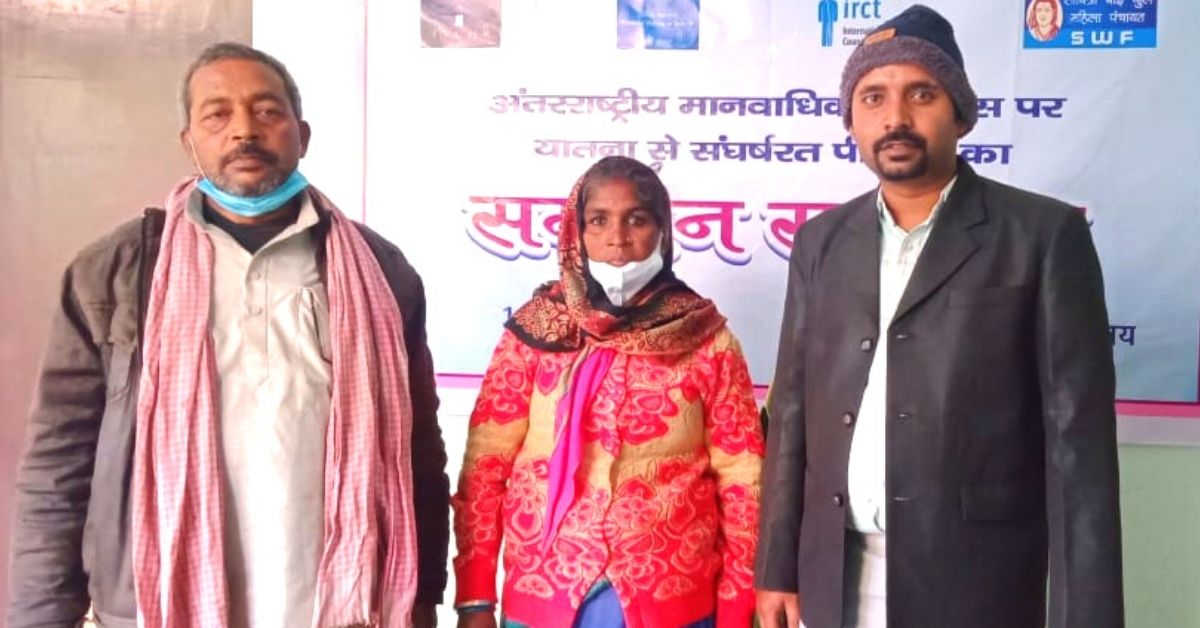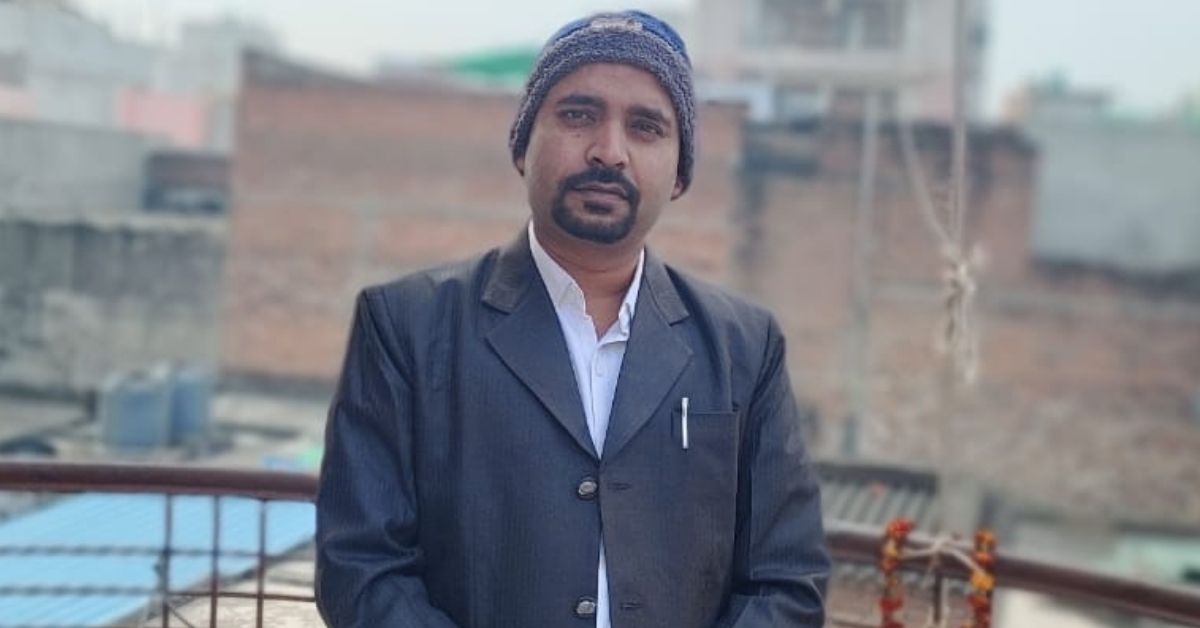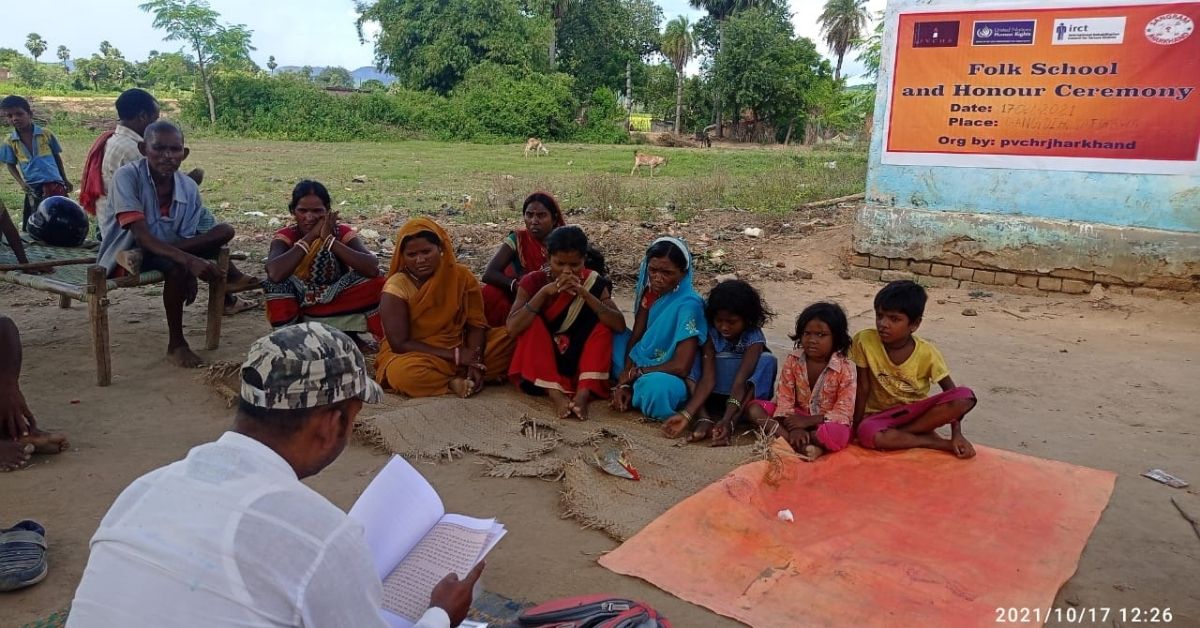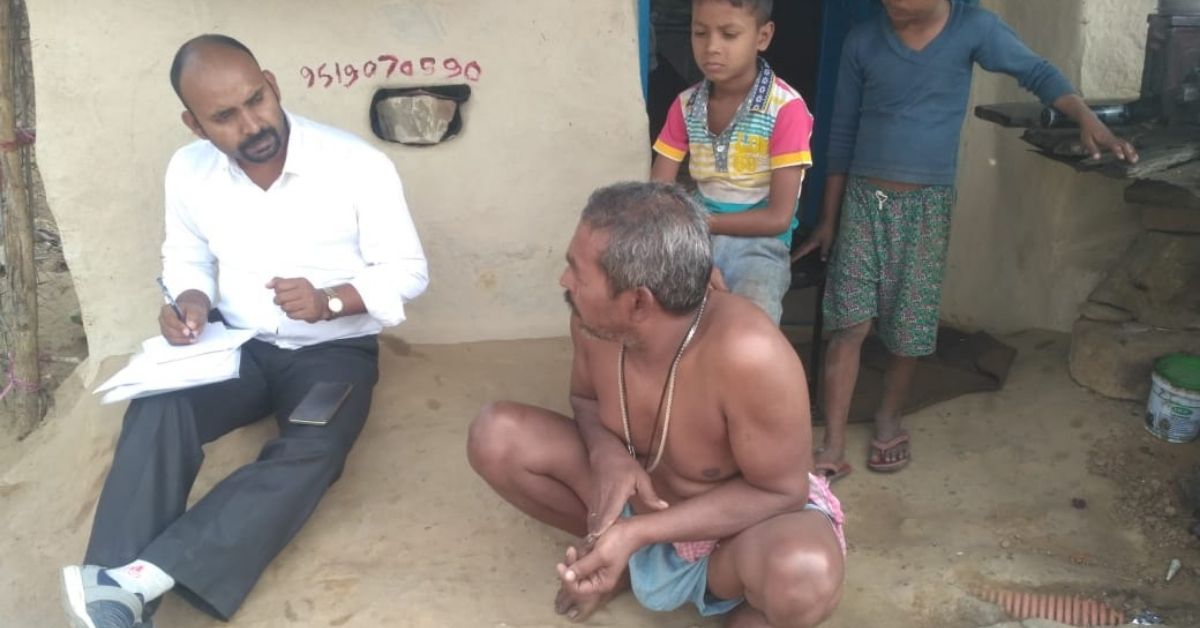A pregnant Mamta Devi, who was in labour, clenched her bedside handles tightly to overcome every contraction.
Lying in a government hospital in Jharkhand’s Koderma district, the pain was so unbearable that she felt like
separating herself from her womb. As she tried to focus on the beautiful miracle of birth, she was asked to wait some more.
After what seemed like a lifetime, Devi was forced to shift to a private hospital as the government doctor in question had neglected Devi and had left for the day to attend her private practice.
While Devi had a normal delivery, giving birth to a healthy baby, the operation fees of the private facility pushed her family into a debt of Rs 50,000.
This episode of medical negligence occurred in 2015, but no less than a year later she was compensated Rs 1,00,000. Devi was pleasantly surprised to know that a man called Onkar Vishwakarma had read about her plight in a newspaper clipping and filed a case with the National Human Rights Commission (NHRC) on her behalf.
Today, Onkar is the voice for several strangers like Devi who have been wronged by the system.

“The beauty of NHRC is that an individual can file a case on behalf of anyone without actually knowing them. In suo moto cases, a newspaper clipping, victim’s statement, police complaint can be counted as evidence,” said Jharkhand-based Onkar, an activist who runs an NGO called Sangram.
This philanthropist fights for the voiceless based on newspaper clippings and Devi’s case was his first major
human rights case. “When I met Devi she was surprised and relieved,” said
Onkar, adding, “The process of filing online and offline is simple. Once I get the judgment, I track down the person and give them the judgment copy which they can use to get the compensation.”
In the last ten years, the thirty-two-year-old has filed several cases with the NHRC and won around fifteen of those cases. Seven people he has fought for, including Devi, have received a cumulative compensation worth Rs 13,00,000. These cases include police brutality, medical negligence, job security, malnutrition-related deaths, and more.
However, the right to express freedom and self-dignity were alien concepts for a young Onkar who hailed from a tiny village called Domachach. Having been physically abused and forced to work for the better part of his childhood, Onkar became a helping hand that he was never privy to.
Absence of Dignity

Onkar was six when he witnessed his inebriated father physically assaulting his cancer-stricken mother for the first time. Soon, domestic violence became an acceptable norm, almost like a ritual in the house. So, when he worked as a child labourer in a garage, he didn’t oppose his employer’s beating.
When his father finally abandoned their family, taking most of their belongings, including their food, he internalized the guilt. His mother took up menial jobs like ferrying passengers on the bullock cart, while his grandmother cut grass. Life was hard all around. The family spent the next couple of years in despair and extreme poverty.
Together, they made just enough money to afford food. Their monthly income was between Rs 75 and Rs 100 in the 1990s. “I was not granted any respect and fair pay even in my second job as a mechanic. I thought I didn’t deserve it until education came to my rescue,” he said.
It was only after clearing Class 8 did Onkar start dreaming big.
“Blame it on the feudalism or caste system, dehumanizing menial jobs like domestic work, garbage collection and manual scaling is a deep-rooted practice in India. What is even more appalling is that even today, most of us turn a blind eye to the dignity of labour,” he said.
Unfortunately, his taxing work schedule hampered his education, and he couldn’t pass his boards in 2003.
“I was back to square one—working in a stone crusher plant for the next couple of years and reappearing for boards with my friends’ encouragement. This time, my intent was different, and I wanted to prove my worth. I studied hard and passed. That was the turning point in my life,” said Onkar.
He then decided to work in the social welfare sector to uplift the downtrodden and the exploited by pursuing a
degree in Sociology Honours from Vinoba Bhave University, Hazaribagh, Jharkhand.
Unfolding the Bitter Truth
 In 2009, he started taking tuitions for school children to payfor his graduation. As part of college projects, he joined an NGO that advocated for the rights of children and farmers.
In 2009, he started taking tuitions for school children to payfor his graduation. As part of college projects, he joined an NGO that advocated for the rights of children and farmers.
“My eyes were opened to society’s bitter truth. It is so unfair that the perpetrators and the exploited continue normalizing discriminatory and unlawful practices. Here, I learnt my biggest lesson that every person has a right to express and a right to dissent. After learning how to use constitutional rights, government welfare schemes and more, I started my NGO in 2008,” said Onkar.
His first initiative was for the upliftment of the endangered Birhor tribal community that resides in a fragmented forest near North Chotanagpur. He helped the forest-dependent families access Aadhar cards, enrol children in schools, avail farming-related government schemes for alternative livelihoods, and other basic facilities such as water and electricity.
After working with the deprived community for more than two years, Onkar found his true calling.
“Several Birhor families had lost their loved ones due to lack of healthcare facilities. There was no compensation or monetary relief given. In 2011, I collaborated with a Varanasi-based People’s Vigilance Committee on Human Rights (PVCHR) to file cases.”
From 2013, he began filing rights isolation cases independently.
“Coming from a marginalized background, Onkar understood what we were doing,” said Onkar’s mentor, Dr Lenin Raghuvanshi, CEO of PVCHR. “He is very hardworking, sincere, passionate, and committed to working on diverse issues. He is a quick learner who refused to bow down in the face of adversities. I am very proud of his work,” he added.
Being the Change in the Face of Threats

Today, Onkar trudges on dangerous paths with constant threats. While in the beginning, it was hard on his wife and children, now he has learnt how to tackle the threats with legal measures.
“There are times when I feel like leaving this profession and settling for something that is more stable and safe. But looking back at my own journey, I feel it’s all worth it and it feels right to continue helping. I am currently pursuing law so that I can go one step further in shielding human rights,” he said with a smile.
For each case, Onkar follows a very meticulous filing and tracking process. Before approaching the NHRC, he follows the progress of the case through news reports. In one of his ongoing cases, he is following up with the help of local journalists to get compensation to the family of a man who was killed in a ‘fake’ encounter in 2019.
One of the most significant cases of Onkar’s career came in 2017 which made national headlines. Baidyanath Ravidas, forty-three, a resident of Dhanbad district died of starvation after not consuming food for seven days. A rickshaw-puller by profession, he had made several trips to get a ration card for subsidized food but to no avail.
Based on the fact-finding report by Jharkhand-based lawyers Shadab Ansari and Mumtaz Ansari, Onkar filed a case with the NHRC. In early 2020, the commission directed the then-Jharkhand Government to pay Rs 1,00,000 compensation to Baidyanath’s kin. It was the first time the State Government gave compensation for death due to hunger.
“Oncc the commission directs the concerned entity or state government, the onus of ensuring it reaches the victim falls on them. In some cases, either it is delayed or not given. In such cases, we follow up with the district administration and get the media’s attention till the family gets the money,” he said.
Being extraordinarily dedicated to his work and compassionate towards others are attributes that make him human to the utmost degree.
“We are far better individuals than we give ourselves credit for,” he adds.
No comments:
Post a Comment